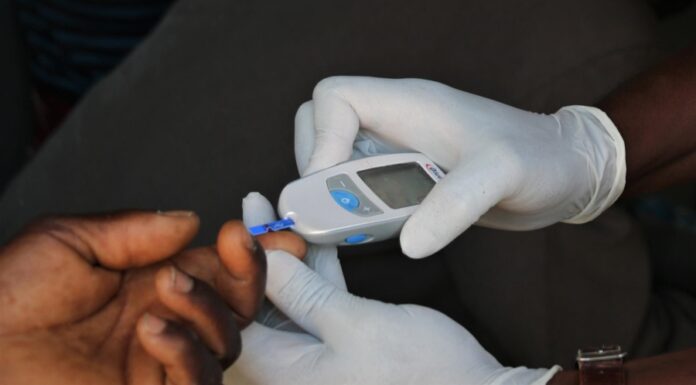A recent study by Azeez, T. A. (2025) titled “Deficiency of Clinical Trials on Endocrine Disorders: Perspectives from Sub-Saharan Africa” published in Nigerian Journal of Medicine reveals that Sub-Saharan Africa faces a severe shortage of endocrinologists
“
Sub-Saharan Africa suffers a severe shortage of endocrine clinical trials due to systemic, cultural, and infrastructural barriers limiting evidence-based care.
-Azeez, T. A. 2025
The study provides a comprehensive review of the critical shortage of clinical trials on endocrine and metabolic disorders in the region, examining the barriers that contribute to this gap and its impact on evidence-based medical practice. Sub-Saharan Africa faces a severe shortage of endocrinologists—for instance, Nigeria has only one endocrinologist per million people compared to one per 41,000 in the U.S.—which limits research capacity and trial participation. Funding constraints further exacerbate the issue, as the continent’s clinical trial market was just $0.91 billion in 2023, prompting pharmaceutical companies to withdraw and leaving local researchers struggling to secure grants. Health priorities are heavily skewed toward infectious diseases like HIV, malaria, and tuberculosis, resulting in underfunded endocrine research.
Limited research skills and mentorship among clinicians often lead to poorly designed trials that fail ethical review or sponsorship. Recruitment challenges arise because some endocrine disorders are rare or underdiagnosed, while community distrust—rooted in past unethical studies—complicates participation, alongside cultural barriers such as language diversity, reliance on traditional medicine, and gender-based consent restrictions. The situation is further worsened by weak collaboration and infrastructure, with minimal regional cooperation, few tertiary hospitals, and limited access to diagnostic tools and trial registries. Brain drain also depletes research leadership, as skilled professionals migrate abroad. Even when trials are conducted, results are seldom published or translated into practice due to a lack of journals, conferences, and industry support.
How the Study was Conducted
The authors employed a comprehensive literature search across multiple sources, including African Journal Online, Cochrane Library, PubMed, Embase, Google Scholar, Scopus, preprint servers such as medRxiv, AfricArxiv, and Research Square, as well as grey literature. Their search strategy employed keywords like “clinical trials,” “barriers,” “limitations,” “endocrinology,” “endocrine disorders,” “metabolic disorders,” and “Africa,” supplemented by specific country names (e.g., “Nigeria,” “Kenya”) and refined using Boolean operators such as “AND” and “OR.”
The review focused on clinical trials related to screening, procedures, devices, prevention, diagnosis, and treatment of endocrine and metabolic disorders. Its primary objective was to identify and analyze the barriers that hinder clinical trial implementation in the region and propose recommendations for enhancing research capacity and output. By using this methodology, the authors were able to provide a comprehensive, evidence-informed overview of systemic challenges in Sub-Saharan Africa without conducting new fieldwork.
What the Author Found
The authors found that Sub-Saharan Africa faces a severe shortage of clinical trials on endocrine and metabolic disorders due to a complex interplay of systemic, cultural, and infrastructural barriers—including insufficient human resources, limited funding, weak research infrastructure, poor training and collaboration, disease-specific challenges, and community-level mistrust—hindering evidence-based endocrinology in the region.
Why is this important
Global Health Equity
The absence of local clinical trials means treatment guidelines rely on data from other regions, which may not reflect African genetics, lifestyles, or healthcare contexts, leading to misaligned care and poor outcomes.
Evidence-Based Medicine
Clinical trials form the foundation of medical decision-making. Without local data, physicians must rely on imported evidence that may not be relevant, undermining care quality and credibility.
Economic and Policy Impact
The lack of trials discourages pharmaceutical investment and innovation, while governments continue to underfund non-communicable diseases, perpetuating neglect despite rising disease rates.
Capacity Building
Highlighting these gaps can drive training of endocrinologists, strengthen research infrastructure, and foster regional collaboration through mentorship, funding, and policy reform.
Community Trust and Engagement
Addressing past unethical trials and cultural concerns transparently is essential to rebuild public trust and encourage meaningful participation in research.
Rising Disease Burden
Non-communicable diseases like diabetes and obesity are increasing in urban Africa. Without local trials, future responses will lack evidence-based guidance.
What the Author Recommended
- Train and retain more endocrinologists, provide mentorship, and offer continuous education in clinical research methodologies to reduce brain drain.
- Increase government and donor investment, establish dedicated research institutions, and improve access to diagnostic tools, reagents, and trial facilities.
- Prioritize endocrine disorders in health policy, create legislation to encourage industrial research involvement, and develop Africa-based clinical guidelines.
- Build regional networks among endocrinologists, promote multi-center trials, and foster partnerships with international researchers and institutions as well as educate the public on trial value and safety, address cultural barriers, and ensure ethical standards and transparency to rebuild trust.
- Enhance access to journals, conferences, and trial registries, encourage publication of results, and support industry translation of findings into health products.
Sub-Saharan Africa faces a critical deficit in clinical trials for endocrine and metabolic disorders due to systemic, cultural, and infrastructural barriers, and addressing these challenges through targeted training, increased funding, strengthened research infrastructure, regional collaboration, and community engagement is essential to improve evidence-based care, foster innovation, and enhance health outcomes across the continent.
















 The African Research (AR) Index is a comprehensive scholarly directory and database focused explicitly on journal publishers that publish and disseminate African research.
The African Research (AR) Index is a comprehensive scholarly directory and database focused explicitly on journal publishers that publish and disseminate African research.

